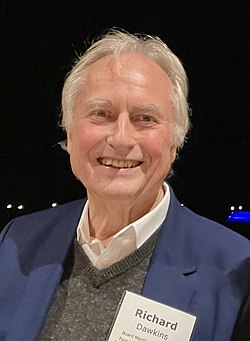Richard Dawkins Quote
Unlike, say, the sun, or the rainbow, or earthquakes, the fascinating world of the very small never came to the notice of primitive peoples. if you think about this for a minute, it's not really surprising.. they had no way of even knowing it was there, and so of course they didn't invent any myths to explain it. it wasn't until the microscope was invented in the sixteenth century that people discovered that ponds and lakes, soil and dust, even our body, teem with tiny living creatures, too small to see, yet too complicated and, in their own way, beautiful, or perhaps frightening, depending on how you think about them.the whole world is made of incredibly tiny things, much too small to be visible to the naked eye - and yet none of the myths or so-called holy books that some people, even now, think were given to us by an all knowing god, mentions them at all. in fact, when you look at those myths and stories, you can see that they don't contain any of the knowledge that science has patiently worked out. they don't tell us how big or how old the universe is; they don't tell us how to treat cancer; they don't explain gravity or the internal combustion engine; they don't tell us about germs, or nuclear fusion, or electricity, or anaesthetics. in fact, unsurprisingly, the stories in holy books don't contain any more information about the world than was known to the primitive people who first started telling them. if these 'holly books' really were written, or dictated, or inspired, by all knowing gods, don't you think it's odd that those gods said nothing about any of these important and useful things?
Unlike, say, the sun, or the rainbow, or earthquakes, the fascinating world of the very small never came to the notice of primitive peoples. if you think about this for a minute, it's not really surprising.. they had no way of even knowing it was there, and so of course they didn't invent any myths to explain it. it wasn't until the microscope was invented in the sixteenth century that people discovered that ponds and lakes, soil and dust, even our body, teem with tiny living creatures, too small to see, yet too complicated and, in their own way, beautiful, or perhaps frightening, depending on how you think about them.the whole world is made of incredibly tiny things, much too small to be visible to the naked eye - and yet none of the myths or so-called holy books that some people, even now, think were given to us by an all knowing god, mentions them at all. in fact, when you look at those myths and stories, you can see that they don't contain any of the knowledge that science has patiently worked out. they don't tell us how big or how old the universe is; they don't tell us how to treat cancer; they don't explain gravity or the internal combustion engine; they don't tell us about germs, or nuclear fusion, or electricity, or anaesthetics. in fact, unsurprisingly, the stories in holy books don't contain any more information about the world than was known to the primitive people who first started telling them. if these 'holly books' really were written, or dictated, or inspired, by all knowing gods, don't you think it's odd that those gods said nothing about any of these important and useful things?
Related Quotes
About Richard Dawkins
A vocal atheist, Dawkins is known for his criticism of creationism and intelligent design. He wrote The Blind Watchmaker (1986), in which he argues against the watchmaker analogy, an argument for the existence of a creator deity based upon the complexity of living organisms. Instead, he describes evolutionary processes as analogous to a blind watchmaker, in that reproduction, mutation and selection are unguided by any sentient designer. In his book The God Delusion (2006) he argues that a supernatural creator almost certainly does not exist and calls religious faith a delusion. He founded the Richard Dawkins Foundation for Reason and Science in 2006. Dawkins has published two volumes of memoirs, An Appetite for Wonder (2013) and Brief Candle in the Dark (2015).
